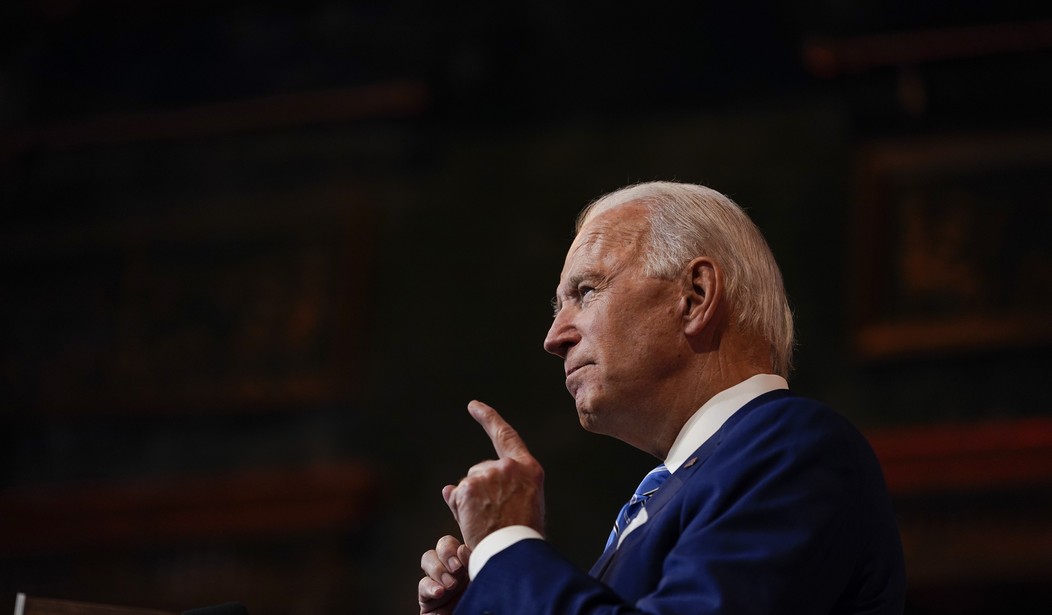On January 20, Joe Biden will become the fourth consecutive President of the United States to take the oath of office with U.S. troops stationed in Afghanistan. But in what would be his greatest foreign policy achievement early in his term, Biden could break the cycle by doing what his predecessors failed to do: end the U.S. war in Afghanistan for good.
The president-elect will spend his first day in the Oval Office with approximately 2,500 U.S. troops still in Afghanistan, the lowest level since the U.S. intervention began nearly 20 years ago. If Biden is as serious about extricating the U.S. from forever wars as he appeared to be during the campaign, he would remove all U.S. troops from the country by May 1, 2020 as stipulated in the February 2020 U.S.-Taliban agreement. The withdrawal would be a better-late-than-never correction to years of stagnant U.S. policy in Afghanistan, where myths about safe-havens and an attachment to unrealistic objectives have too often dictated the mission.
As vice president, Biden strongly opposed deploying an additional 30,000 U.S. troops to resource a counterinsurgency operation against the Taliban. But despite his healthy skepticism, Biden is receiving advice from the U.S. foreign policy establishment that would keep the U.S. military trapped in the South Asian country for another generation. Some, like Ret. Gen. John Allen, believe spending $10 billion-$20 billion a year to maintain a stalemate is a sustainable investment. Others, such as Ret. Admiral James Stavridis, argue that a modest increase in U.S. troops would send a signal to the Taliban that Washington is in it for the long haul.
Recommended
Biden will listen to these worn-out arguments. Yet he ought to do so with the understanding that they are intended to perpetuate the status-quo—one that drains U.S. resources, distracts the U.S. foreign policy apparatus, overextends the U.S. military and places American servicemembers in the position of bailing out the Afghan government whenever it gets into trouble.
In an ideal world, tying a U.S. troop departure to vague objectives like peace and stability in Afghanistan would pressure the Taliban into weakening its maximalist demands. Unfortunately, the United States doesn’t have the luxury of anchoring its foreign policy to fantasy-world assumptions. The last 20 years have illustrated that the Taliban are not easily persuadable, nor can they be pressured into concessions through military means. Taliban fighters have fought the world’s largest superpower to a standstill. Its resistance is driven in large part on the realization that, sooner or later, the U.S. will eventually leave. Indeed, if the Taliban were cowed by U.S. military force, the insurgency would have ended by now. To think a few more years of U.S. bombing or special operations would do what 20 years of U.S. military operations could not is to disregard common sense.
Some commentators are nevertheless willing to sign their names to a long-term U.S. military presence, believing troops on the ground will determine the success or failure of intra-Afghan negotiations. Evidence for that linkage, however, is thin.
And even if a residual U.S. military presence impacted the intra-Afghan talks in a positive way, why is it the U.S. military’s responsibility to ensure Afghans peacefully co-exist? How is it ethical, noble, or wise for U.S. policymakers to use U.S. servicemembers for that purpose? How long is the U.S. military supposed to wait before the major Afghan stakeholders get their act together?
Nothing about the intra-Afghan peace process has been easy. According to the U.S.-Taliban agreement, the talks were supposed to begin on March 10; instead, they were delayed for seven months, upon which Kabul and the Taliban battled over multiple rounds of prisoner exchanges. The Afghan delegations only formalized the rules and procedures for the negotiations in early December, three months after the discussions finally started. Talks on the extensive agenda could take months—and we haven’t even gotten to the substantive conversations, which are destined for multiple breakdowns along the way.
Is Biden willing to reassess the U.S. drawdown schedule and wait it out, with no prospect of an endgame? If so, he better prepare himself for more deployments, more casualties, and more wasted taxpayer dollars for little to no return on investment.
What critics of a U.S. withdrawal consistently fail to comprehend is that there is never a perfect time to get out of Afghanistan. Those who worry about an emerging civil war ignore the fact that Afghanistan has been in a state of civil war for the last four decades. Regrettably, that civil war will continue regardless of how many U.S. or NATO troops are on the ground.
Joe Biden has a golden opportunity to end America’s longest conflict. Actually ending it, though, will require the incoming administration to dispense with the wholly discredited arguments that have truncated U.S. policy in Afghanistan into an expensive, sunk-cost fallacy.
Daniel R. DePetris is a fellow at Defense Priorities and a columnist at Newsweek.

























Join the conversation as a VIP Member